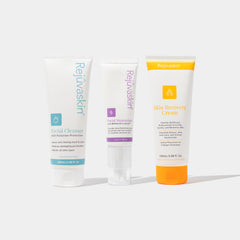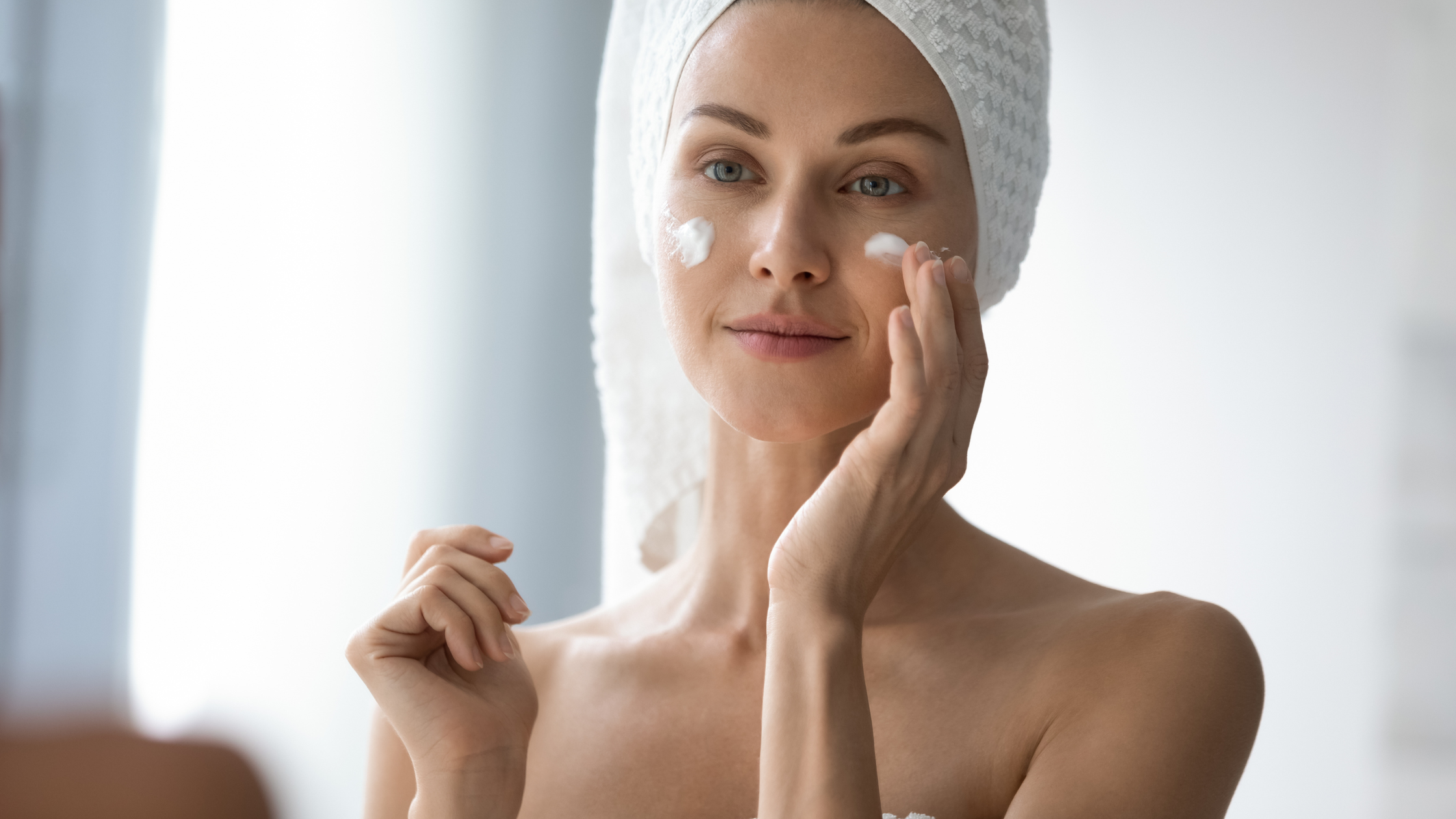If glowing, plump, youthful skin is the goal, then collagen is the silent hero behind the scenes. But did you know that some of your everyday habits may be working against it?
Collagen is the structural protein that keeps skin firm, elastic, and smooth—but over time, lifestyle and environmental factors can degrade it faster than your body can replace it. At Rejûvaskin, we’re all about protecting your skin from the inside out, so let’s take a look at five common habits that sabotage your collagen levels—and what you can do to reverse the damage.
1. Too Much Sun (Yes, Even Through the Window)
Why it’s bad:
UV radiation is the number one external factor in premature collagen breakdown. It penetrates the skin and generates reactive oxygen species (ROS), which trigger enzymes (MMPs) that break down collagen and prevent new collagen from forming (Kim & Park, 2016).
What to do:
Use broad-spectrum SPF daily, even on cloudy days or indoors near windows. Antioxidants like vitamin C and marine extracts can help neutralize free radicals before they degrade your skin matrix.
2. Smoking (or Being Around Smoke)
Why it’s bad:
Tobacco smoke contains thousands of chemicals that activate the aryl hydrocarbon receptor (AhR), triggering inflammation and oxidative stress that accelerates collagen loss. Smokers also produce more MMPs, leading to sagging and deeper wrinkles (Morita et al., 2009).
What to do:
Quitting (or avoiding secondhand smoke) helps your skin regenerate collagen naturally. Antioxidant-rich skincare can support recovery.
3. Too Much Sugar in Your Diet
Why it’s bad:
Sugar binds to collagen and elastin through a process called glycation, forming Advanced Glycation End Products (AGEs). These AGEs make collagen fibers stiff, brittle, and prone to breakage, reducing skin elasticity and radiance (Ichihashi et al., 2011).
What to do:
Cut back on refined carbs and sugars. Focus on antioxidant-rich foods like berries, leafy greens, and omega-3s to combat glycation stress.
4. Stress That Goes Unchecked
Why it’s bad:
Chronic stress releases cortisol, which slows down collagen production and increases inflammation. Over time, this contributes to thinner skin, loss of elasticity, and deeper lines (Bae, 2009).
What to do:
Incorporate stress-reducing routines into your day—like mindfulness, journaling, or even just 10 minutes of deep breathing.
5. Skipping Moisturizer or Using Harsh Products
Why it’s bad:
Dry, unprotected skin is more vulnerable to damage. Without proper hydration, the skin barrier weakens and collagen-degrading enzymes can run wild (Rajkumar et al., 2023).
What to do:
Use barrier-repairing skincare daily to seal in moisture and protect your skin from collagen loss.
Rejûvaskin Products That Protect Your Collagen
At Rejûvaskin, we formulate every product to respect your skin’s structure while reinforcing what keeps it strong—including collagen. Two great options to support collagen and skin health:
Rejûvaskin Skin Recovery Cream
Contains hyaluronic acid, aloe, calendula, and peptides that calm inflammation and help maintain the collagen-rich dermis—perfect after treatments or for stressed skin.
Hydrating Facial Cleanser with EXO-P™
This gentle cleanser protects the skin from pollution and oxidative stress, thanks to EXO-P™, glycerin, and a pH-balanced formula that’s safe for even the most sensitive complexions.
Your skin works hard to protect you—and collagen is a huge part of that protection. While you can’t stop aging, you can slow it down by avoiding the lifestyle habits that break down collagen and embracing a skincare routine that supports it.
Ready to protect your collagen? Start with science-backed skincare and smart daily habits. Your future self will thank you.
Works Cited
-
Ichihashi, M., Yagi, M., Nomoto, K., & Yonei, Y. (2011). Glycation stress and photo-aging in skin. Anti-aging Medicine, 8, 23–29.
-
Kim, M., & Park, H. (2016). Molecular mechanisms of skin aging and rejuvenation.
-
Morita, A., Torii, K., Maeda, A., & Yamaguchi, Y. (2009). Molecular basis of tobacco smoke-induced premature skin aging. The Journal of Investigative Dermatology: Symposium Proceedings, 14(1), 53–55.
-
Rajkumar, J., Chandan, N., Lio, P., & Shi, V. (2023). The skin barrier and moisturization: Function, disruption, and mechanisms of repair. Skin Pharmacology and Physiology, 36(3), 174–185.
-
Bae, K.-H. (2009). Literature review of factors affecting to the skin aging process. Journal of Investigative Cosmetology, 5(2), 145–149.





















Leave a comment